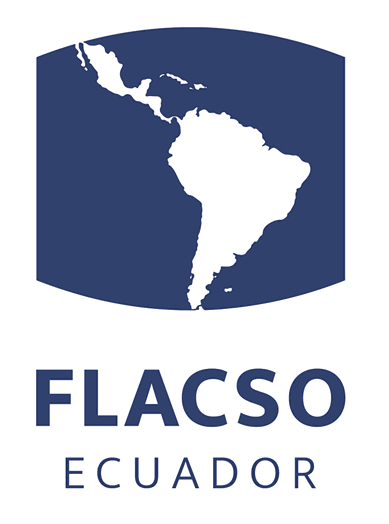Por favor, use este identificador para citar o enlazar este ítem:
http://hdl.handle.net/10469/24357| Tipo de Material: | Libro |
| Título : | Advocating for Evaluation: a toolkit to develop advocacy strategies to strengthen an enabling environment for evaluation |
| Autor : | Karkara, Neha |
| Editor: | Segone, Marco Catsambas, Tessie Rugh, Jim |
| Fecha de Publicación : | 2015 |
| Ciudad: Editorial : | s.l. : UNWomen : EVAL PARTNERS : IOCE |
| Cita Sugerida : | Karkara, Neha. 2015. Advocating for Evaluation: a toolkit to develop advocacy strategies to strengthen an enabling environment for evaluation. Editado por Marco Segone, Tessie Catsambas y Jim Rugh. s.l.: UNWomen / EVAL PARTNERS / IOCE. |
| Descriptores / Subjects : | EVALUACIÓN DEL SISTEMA DE INFORMACIÓN ESTRATEGIAS DE DESARROLLO GOBIERNO POLÍTICA IGUALDAD GÉNERO |
| Paginación: | 155 páginas |
| Patrocinador/Auspiciante/Fuente : | Publicaciones Convenios ONU |
| Índice / Contenido: | ÍNDICE Acknowledgements 6 | Preface 7 | Getting familiar with the toolkit 8 | 1 Introduction 13 | 1.1 Developing national evaluation capacities 13 | 1.2 Role of CSOs and VOPEs in strengthening national evaluation capacity development 18 | 1.3 Role of governments in supporting national evaluation capacity development 21 | 1.4 Role of parliamentarians in building an enabling environment for evaluation 24 | 1.5 Role of partners in supporting national evaluation capacity development 25 | 1.6 Advocacy for building an enabling environment for evaluation 25 | 2 Developing an advocacy strategy to build an enabling environment for evaluation 29 | 2.1 Why plan for advocacy 30 | 2.2 Nine questions for strategic advocacy planning 31 | Question 1: What do we want? (Goals) 33 | Question 2: Who can give it to us? (Audiences, Targets or Power-Holders) 38 | Question 3: What do they need to hear? (Messages) 54 | Question 4: Who do they need to hear it from? (Messengers) 58 | Question 5: How can we make sure they hear it? (Delivery) 60 | Question 6: What have we got? (Resources, strengths) 75 | Question 7: What do we need to develop? (Challenges, gaps) 75 | Question 8: How do we begin? (First steps) 76 | Question 9: How do we tell if it's working? (M&E) 79 | 2.3 Putting together the advocacy strategy using nine questions 84 | 3 Tracking progress in advocating for an enabling environment for evaluation 86 | 4 Advocating for equity-focused and gender-responsive evaluation policies 93 | 5 Strengthening partnerships to influence evaluation policies and systems 101 | 6 Working with parliamentarians to increase demand for evaluation 111 | 7 Managing knowledge in advocacy 120 | 8 Managing risks in advocacy 125 | 9 Mobilizing resources for advocacy 129 | Annex 1: Effective press releases, press kits, media events and interviews 132 | Annex 2: Glossary 134 | Abbreviations 138 | References 141 | |
| Resumen / Abstract : | Evaluation partners around the world are committed to promoting the demand and use of evaluation by governments and parliaments, to inform policy development and increased social accountability through evaluation. The global commitment to EvalYear 2015 – the International Year of Evaluation is increasing the pressure on evaluation partners to act as advocates for evaluation. Evaluation partners need to step up their efforts to advocate for an enabling environment for evaluation, including by developing and implementing evaluation policies that are equity-focused and gender-responsive. The Evaluation Advocacy Toolkit promotes learning from evaluation partners who have been successful in advocating for evaluation, and also from advocacy experts who bring special skills that evaluation practitioners need. |
| Copyright: | openAccess Atribución-NoComercial-SinDerivadas 3.0 Ecuador |
| URI: | http://hdl.handle.net/10469/24357 |
| Aparece en las colecciones: | Colección General |
Archivos en este ítem:
| Archivo | Descripción | Tamaño | Formato | |
|---|---|---|---|---|
| A-Cubierta-L-Karkara-142236.jpg | Libro - cubierta | 79,15 kB | JPEG |  Visualizar/Abrir |
| LEXTN-Karkara-142236-PUBCOM.pdf | Libro - texto completo | 2,06 MB | Adobe PDF |  Visualizar/Abrir |
Este ítem está sujeto a una licencia Attribution NonComercial ShareAlike (CC BY-NC-SA 4.0)
Licencia Creative Commons



